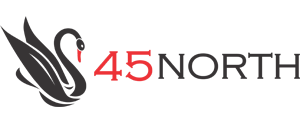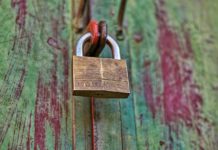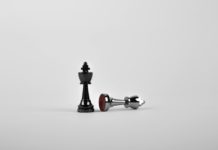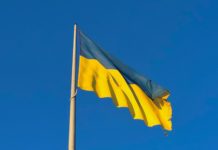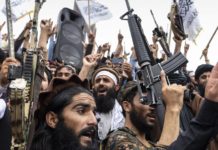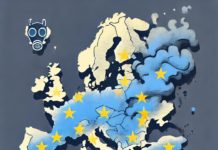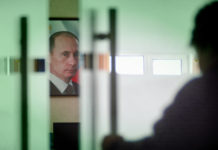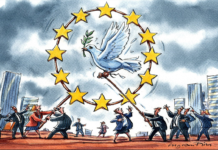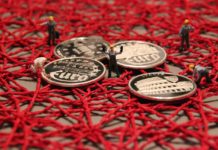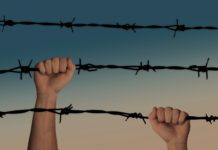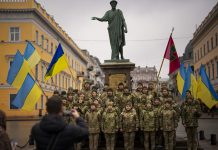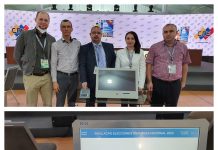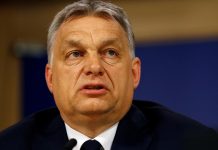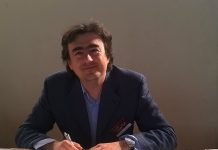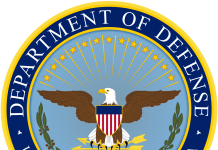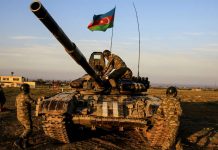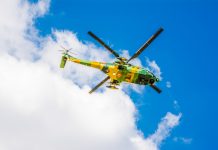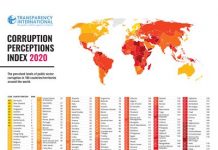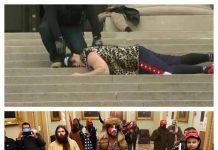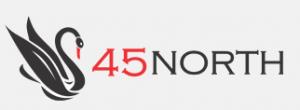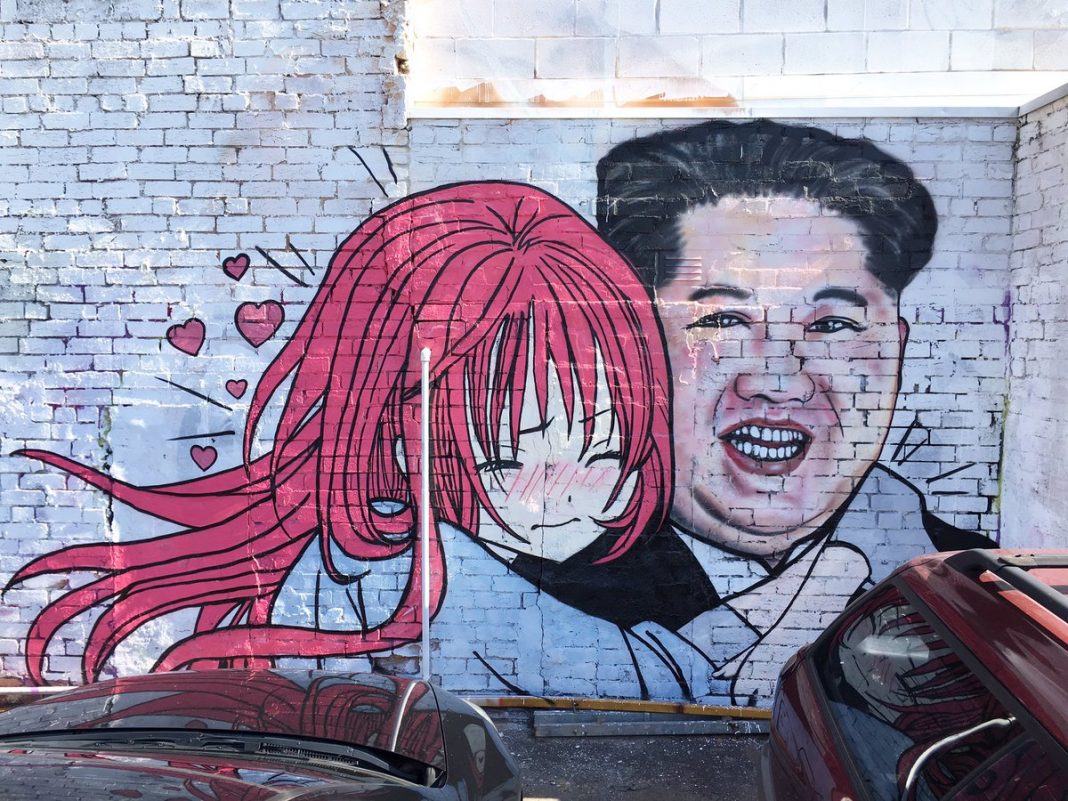
As professor Andrei Lankov said in this Foreign Policy analysis, “seeing them [the Kim family] as madmen is not only wrong, but also dangerous; any successful policy should be based on understanding the logic of the opposite side, not on discarding it as irrational.” With an escalating war of words between Kim Jong Un and Donald Trump, who specifically called Kim a ”madman”, going deeper into the background of both Kim and the country’s reality becomes imperative. Trying to map out what are the building blocks of Kim’s personality and the hidden forces that act at the deepest level of North Korean society could mean the difference between peace and nuclear war.
The boy who slept with his basketball
The exact date of birth of Kim Jong Un does not share general consensus. North Korean authorities say that he was born on January 8, 1982, as Business Insider reports, but this might have been changed in order to symbolically match 70 years from the birth of Kim Il Sung and 40 years from the birth of Kim Jong Il. These changes have a lot to tell us about the importance of propaganda and ideology as tools to carve a political path in North Korea. The Treasury Department’s list of Specially Designated Nationals puts the date of his birth to January 8, 1984.
The reclusive nature of the regime and its hermetic stance towards anything that comes from outside its borders, be it culture, religion, news and opinions, runs contrary to the decision made by Kim Jong Il to send most of his children to be educated in Switzerland. A 2009 Washington Post piece cites Swiss weekly L'Hebdo placing Kim Jong Un as a pupil of the International School in Bern from 1993 to 1998. However, the shy boy described by colleagues, identified as "Pak Chol", is claimed to be actually Kim Jong Un's older brother, Kim Jong Chol, according to a later Washington Post article, citing North Korea watchers.
This remains shrouded in a fog of mystery, with Sebastian Hueber, spokesman for the Federal Department of Defense, Civil Protection and Sport in Switzerland saying that the intelligence agencies that operate under the department only monitor individuals that pose a “direct threat” to the state and thus, not having further concrete information on "Pak Chol’s" true identity. The characterization coming from former colleagues of the presumed Kim Jong Chol as being shy matches the idea that Kim Jong Il did not appoint Chol as a successor for being effeminate, as the South Korean newspaper Chosun Ilbo reported in December 2011, during the transition of power to Kim Jong Un.
What we do know with more certainty is that Kim Jong-Un has attended Liebefeld-Steinhölzli school between 1998 and 2000, based on a 2009 report by Berner Zeitung, a Swiss newspaper citing João Micaelo, a classmate of a North Korean student Pak-un, who said that the latter told him his father was North Korean ruler Kim Jong-Il. The school issued a statement in 2011 confirming that a North Korean student did attend the school in that period of time but could not confirm he was in fact Kim Jong Un.
According to Joao Micaelo, the son of a Portuguese immigrant couple whom Kim Jong-un sat next to on his first day in class, cited by The Telegraph, said he was “an ordinary teenager, a fairly quiet guy who never really talked much about his home country or politics.” The pair also shared a love for basketball, with Michael Jordan and the Chicago Bulls being their heroes, especially to the young Kim. Later in his life, this passion has been confirmed by the peculiar visit of former Chicago Bulls star, Dennis Rodman, to Pyongyang.
There are two elements that give us a higher degree of certainty when saying that Pak-un, the pupil enrolled at Liebefeld-Steinhölzli middle school, was in fact Kim Jong-Un. First, a 2016 Washington Post interview with a North Korean defector that claimed to be Kim’s aunt, Ko Yong Suk, the sister of Kim’s mother, Ko Young Hui. The latter was in Bern from 1992, arriving there with Kim Jong Chol. According to her, Kim Jong Un arrived in Switzerland in 1996, when he was 12, two years prior to enrollment at Liebefeld.
She portrays Kim as a normal adolescent growing up in the West, with friends coming over to play video games and hang out. “I encouraged him to bring his friends home, because we wanted them to live a normal life. I made snacks for the kids. They ate cake and played with Legos,” Ko Yong Suk said. Furthermore, the Kims enjoyed an above the average lifestyle, being North Korean royalty. She recalls trips to Disneyland Paris, skiing in the Alps and swimming on the French Riviera. She confirmed Kim Jong Un’s strong personality, going into hunger strikes when his mother told him to study more and play less. Also, Yong Suk confirms Micaelo’s story that his North Korean friend, considered to be Kim Jong Un, had almost an obsession for basketball. She says that the boy loved the game so much that he slept with the ball in his arms.
The other element that tends to validate at least this part of Kim Jong Un’s Switzerland experience is the anthropological analysis made by the Anatomic Anthropology Laboratory in Lyon, France, which concluded that there is a 95% match of facial features between pictures thought to be of Kim Jong Un as a high school kid and current pictures of him.
The plot is thickened by the fact that in 2012, an article by the Le Matin Dimanche newspaper in Switzerland, claimed that upon reading official police documents, they can say that Kim Jong Un has been in the country since 1991, which means his exposure to Western life and culture has been much more deep than previously thought. The article’s author, investigative journalist Titus Plattner, said in an e-mail conversation for 45north that “Kim Jong Un and his "family" got a residency permit in Switzerland since Nov 25, 1991, first in Geneva. They settled in Bern in December 1993 (demand from the NK Embassy on Dec. 4th 1993). Kim Jong Chol, alias Chol Pak, began the international School of Bern in 1994.”
Could this exposure tell us something useful in trying to understand Kim’s next moves, both domestically and internationally? I think it does. He has been described by both his maternal aunt and his classmates as a reserved kid, which was capable of integrating in a completely new environment, adhering to Western pastimes and going through normal adolescent stages of rebellion and wonder. His ambition to always win on the court tells us that he is competitive in nature and will feel bothered by not achieving what he set out. "He was tough and fast, good at both shooting and dribbling. He hated to lose. Winning was very important," said Marco Imhof, another classmate.
This might also be indicative of a desire to be acknowledged, to be in the spotlight, to gather praise. Ko Yong Suk’s insight on his 8th birthday when he was dressed as a general with the military paying respect is important. He knew from a very fragile age that he was royalty and people around him acted as such. He was a little emperor, enjoying the perks of living in the West, awaiting for the day he would rule.
The fact that he knew he was beyond privilege and he had a destiny to fulfill is shown in trivial recollections by his former classmates in the Telegraph report. When served some cold spaghetti at his house by servants, he addressed them in a fit of rage, with authority, which might show that he knew his place in on the social ladder. This, coupled with his ambition and drive, might explain how he managed to keep the layers of power beneath him in check during the transition period, after the death of his father, when factionalism could have threatened the very young leader. He knows that a tight, even deathly grip on power and entourage, is necessary in playing palace intrigue in Pyongyang.
In this 2015 documentary film by Anthony Dufour, called “The Last Red Prince” in its French original version, Ueli Studer, head teacher at Liebefeld-Steinhölzli middle school says that Pak Un was an average student in terms of academic achievements but he was rather good at basketball. Titus Plattner, member of the International Consortium of Investigative Journalists, the person who spearheaded the Le Matin Dimanche investigation into police documents, said in the same documentary that Kim was exposed to curricula that presented Swiss democracy and its mechanisms to the pupils, even taking them to the Swiss parliament. Even though Kim was not one of the most academically accomplished students, exposure to these concepts must have made an imprint on his adolescent mind. This does not necessarily translate to more openness towards democracy at home, but as we will see, this might have led Kim to find a path to hold his grip on power, sustain a nuclear program and improve the economy.
The prince that thought of change
Upon returning to North Korea and working up the military and political ranks, groomed for one day ruling the hermit state, Kim Jong Un seems to have preserved some elements of his bourgeois years in Europe, mainly the idea of markets that could sustain a higher standard of living. We can see this in the fact that the young leader asking the Cabinet “to prepare an improved method of economic management,” especially in the area of agriculture, according to this study by the Korea Development Institute of what has been since called New Economic Management System.
The timing mentioned in the report is peculiar: “on the day of Kim Jong-Il’s funeral”, which means that for Kim Jong Un this is a defining program, a new approach to the economic model, a very sensitive subject in the conservative circles of North Korea, something that is seen honey-coated poison, as Nicholas Eberstadt of the American Enterprise Institute describes for an NPR podcast. In the same piece, Andray Abrahamian with the Choson Exchange, tells how he has made dozens of flights to Pyongyang, spreading capitalism, something that he denies, instead using an euphemism: “improving management techniques.” The fact that during the dangerous time of the transition of power Kim Jong Un reportedly expressed these ideas means that this is something that he wants to define him as a leader as much as nuclear weapons.

The honey-coated poison that conservatives in Pyongyang refer to is not necessarily dangerous in terms of ideology, with socialism and capitalism at odds, but in terms of tipping the balance of the power structure in North Korea, reducing stockpiles of food and other produce that otherwise were reserved for the military. The transfer from songun (military first) policy, to a more diverse but mainly party oriented ownership of new business shows that Kim is taking power from the military and is channeling it in the party, where he has a tighter grip. The reform was ultimately not successful in its scope but it did bring a wave of change in North Korea, exposing society to some markers of the market economy, something that everything indicates is coming from Kim himself.
In this Yale Journal of International Affairs analysis, the author makes a comparison between China’s transfer from a planned economy to a market economy and North Korea’s attempts in this direction. The conclusion says that Kim Jong Un does not share Deng Xiaoping’s relative good relation with the U.S. and Japan and his country does not have the same global strategic importance as China does and that the hereditary political system that took shape in North Korea acts like a barrier to change, in contrast to a more fluid Chinese power transfer. Also, Kim lacks the political will to push more radical changes.
The fact that Kim lacks the necessary political capital to fully go ahead with more liberal economic experiments is highlighted in his statement at the 7th Party Congress held in 2016, 36 years after the 6th Party Congress. Apparently, the truly historic moment did not give rise to new momentum in terms of economic reform, with Kim talking about “building the powerful socialist state planned by the great leaders”. This only shows that Kim is aware of the large bureaucratic apparatus that channels his power into programs and directives and must secure his position on the long-term and not risk everything for the sake of the changes that he might have in mind.
Nevertheless, it is quite remarkable that traces of his childhood in the West influence his policy. Most certainly, his exposure to a highly advanced economy as Switzerland must have shaped his vision for a new economic model, something that is a very dangerous idea in North Korea and he must tread carefully with it. Furthermore, his openness towards the people, taking pictures with ordinary people, taking roller coaster rides and carefully tweaking his persona, both physically and ideologically, to fit the outlines of his grandfather, tells us a story of a man with change in his mind. Being a public person was something that his father rejected but he seems to love the crowds. Coming back to his experiences in childhood, the fact that he managed to integrate in a foreign environment and he loved to be the playmaker on the court indicate that he is in a position he genuinely loves. He loves the attention and the rock star status and he will most probably close an eye to the process of marketization that has given rise to the donju – the new money in North Korea, in order to keep the population as much as possible out of poverty and to be able to fund his nuclear program.
However, the reality in North Korea is that the trend that Kim Jong Un started in 2012 has emboldened the entrepreneurial spirit of North Koreans, desperate for a better standard of living. The NPR podcast mentioned here speaks of a young North Korean girl living near the Yalu River, collecting berries and selling them in the village, only to use the money to buy better alcohol than was available in her village, turning in a nice profit. This small, romanticized story does signal something that is innate to human beings: striving to improve their conditions. And it seems North Korea as a whole is doing so.

Bloomberg reported that North Korea’s GDP grew with 3.9 percent in 2016, the highest pace in the last 17 years. In this interesting podcast, Bloomberg speaks to professor Byung-Yeon Kim from Seoul about the unlikely economic boom in North Korea. The professor says that while the growth is good, it comes from a very low baseline and it definitely lags far behind South Korea. According to him, 70% of people work in the informal economy. Nevertheless, Kim’s economic changes could mean a threat in the long run because the formation of a genuine middle class might mean the death of the regime. But on the short term, this policy of closing one eye to the insertion of capitalism in North Korea props up the regime within the population and raises capital for the nuclear program, which is seen favorably by conservatives and the military.
The dictator that danced on the brink
Returning to the fiery rhetoric that I’ve stated in the preamble of this article, the war of words between Donald Trump and Kim Jong Un seems to have reached a boiling point, with both of them referring directly to their nuclear arsenal and their respective capacity to incinerate millions of innocent people, if their adversary does not cave in to some specific demand, be it accepting North Korea as a nuclear state or abandoning or freezing the DPRK’s nuclear capabilities. Even if this statements generate a lot of funny cartoons about buttons, there is a sobering chill that these statements should induce to any foreign policy analyst, diplomat or simple observer, taking into account that Pyongyang and Seoul, two cities separated by only 185 kilometers, have a total population of over 12 million people, not taking into account metropolitan areas and both would most likely be targets in the eventuality of nuclear conflict. Brinkmanship is defined in the Oxford dictionary as “the art or practice of pursuing a dangerous policy to the limits of safety before stopping, especially in politics.” It could also be described as an art because it fails to clearly and sharply define the prerequisites and steps necessary to be successful. By its nature, success is always very close to catastrophe. This is not the first time the world is watching with unease a game of brinkmanship with a nuclear twist unfolding. The Cuban missile crisis was just that, with Kennedy telling the world and his Soviet counterpart that Soviet missiles in Cuba were unacceptable and were worth the risk of a preemptive strike. In this Washington Post piece, Michael Hirsh, former foreign editor of Newsweek, argues that brinkmanship could turn the tables on North Korea, firstly because diplomacy in its classical sense has not been a language that Pyongyang seems to understand or want to, for that matter. Secondly, brinkmanship may not necessarily be directed only towards North Korea and Kim, but also to China, who would definitely not want a major war on its doorstep, with millions of refugees and a dramatic increase of American military assets that could potentially be within miles of the Chinese border.
As we’ve seen, Kim Jong Un is not an irrational actor with Bond villain like plan to conquer the world, but rather a rational political character that wants to perpetuate the feat of his grandfather and father, that of surviving decades upon decades of tumultuous international politics, sometimes despite all odds. But brinkmanship might be a successful strategy but one that Kim Jong Un cannot escape, even if he wanted to. Dmitriy Nurullayev, a former fellow at the Davis Center for Russian Studies at Harvard University, says for The Diplomat that North Korea’s brinkmanship will never stop because it is a core part on how the regime portrays itself domestically. Brinkmanship, ironically, is not about facing the adversary, portrayed by an imperialistic United States, but by rather facing their own population, which is much more susceptible to rough economic conditions and a totalitarian rule if it is made to believe that there is a military juggernaut coming out for them. This is extremely dangerous because it is a game that Kim cannot escape, and it might make him act truly irrational if the stakes are high enough and if he and most importantly his ruling elite believe their throne is in danger.
What turns this story of a dictator dancing on a brink even darker is the fact that he is dragging the entire population of North Korea in this we versus them narrative. In this short documentary by New York Times and journalist Nicholas Kristof, we see a Pyongyang which is full of anti-American propaganda and calls for war against imperialists. Kristof says that in previous trips he and his team stayed downtown in Pyongyang but in this 2017 visit they stayed in a Foreign Ministry’s guest house, outside of Pyongyang, which they learned was a tactic by the more reasonable, dovish side of the political spectrum in the Ministry, trying to shield them from the hardliners. Kristof ends on a dire note, saying that one the mistakes the media has done in the period building up to the Iraq was that it did not sound any alarm bells and now, with this documentary and other articles, they are doing so.

What is striking to me that we do not take into account when drafting policy is that people in the capital, despite living lives burgeoned by totalitarian rule are just like us. They have the same natural, lovely reactions when they are filmed, especially children. They smile with curiosity and shyness. This might seem inconsequential but it is critical when disseminating North Korean policy to the public, especially American public, because it is very easy for them to become dehumanized, mindless, and susceptible to attack without remorse. This is particular dangerous because the lack of public outcry to the one country that is most probable to go to war with North Korea might mean the outbreak of war.
So is there something in Kim’s childhood, in his personality, that we could use to promote dialogue and de-escalate tensions at least, if not achieve denuclearization of the Peninsula, which is now a distant dream? What we do know is that he is a rational actor, who is genuinely comfortable with his role on the top of the political and social ladder in North Korea, a seat that he will defend at all costs. He knows that threats from within are much more dangerous that threats from the outside world, thus this is leverage that the international community anchored to this issue should use, in order to achieved-escalation. I think that his willingness to change and slowly try new economic policies, despite powerful conservative military elements in the echelons of power, means that Kim understands that he will not be able to copy&paste the policies and looks of his grandfather, but rather change and adapt to a new world. This means that he must be willing to talk. We see signs of this in Politico’s interview with Suzanne DiMaggio, senior fellow at the New America Foundation and Joel Wit, former U.S. diplomat and founder of North Korea watcher website 38north. They describe their back channel meetings with senior North Korean officials in Moscow, Oslo, Pyongyang and Geneva. In this interesting interview and associated podcast, we learn that the North Korean officials initially expressed an openness to have formal discussions with a new administration but this window has been swiftly closed by the exchange of harsh rhetoric between Trump and Kim Jong Un.
The so-called Olympic diplomacy in Pyeongchang is a much needed de-escalation of tensions. With the Koreans marching in the opening ceremony under an unified flag and with Kim’s sister, Kim Yo Jong, on a charm offensive in South Korea, it is certainly a departure from the alarming nuclear threats that both Trump and Kim have resorted to in the last months. What we are now seeing is just the tip of a diplomatic iceberg composed of months of behind the scenes talks to pull this off, as the New York Times reports. This is very encouraging, as it means that at least North-South channels are open and this might mean the difference between peace and war. Even more encouraging is Kim’s invitation to Moon Jae in, South Korea’s president, sent via his sister. This would be a first in the last 10 years of diplomacy and a big win for Moon who campaigned on a rapprochement to North Korea.
This, of course, should not cloud our judgement on North Korea. They are probably buying time in order to achieve their end-goal – a missile capable of reliably hitting any American city, something that they are already claiming they can do, but most probably are months to years away. Nevertheless, as Nicholas Kristof says in the above mentioned documentary, the prospect of war with North Korea is so horrifying, with as much as 1 million dead in the first day that we should not only be interested in talks, we should be interested in talks about talks.
In this interesting DW documentary about North Korea, photojournalist Luca Faccio documents on film the life that he is allowed to see by his minders in his visits. He has the experience behind him, with several visits in the last years and he is able to catch some interesting scenes from the day to day life in Pyongyang. For example, he reports on a 2015 event when controversial Slovenian rock band Laibach became the first-ever Western rock group to perform in North Korea's capital at the Ponghwa Theatre. In what was a surreal moment for the band and the ones present there, the singers played classic songs, with the Beatles' "Across the Universe", being probably most subversive, especially with American rockets launched on the projection at the back, as Ivo Salinger, the leader of the band recalls for Rolling Stone magazine.
He says that it was the first time that while participating at the Arirang Festival, a mass gymnastics and artistic festival, he saw people trying to leave the massive propaganda staged show early, with staff trying to prevent them. Maybe this is a rare glimpse on how the emergence of a middle class in Pyongyang is slowly starting to erode the regime.
In his work to one can see the hidden human diversity between the often bleak, uniform image portrayed in some media of North Korea and its society. The same natural and shy smiles emerge in Faccio’s work as in Kristof’s documentary. For this, and this only, it is definitely worth the long game of diplomacy and pressure, to work with and around the regime, in order to avoid a terrible outcome.
